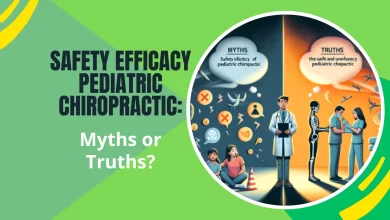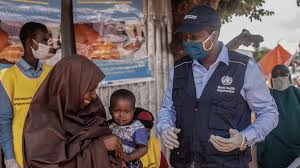Empowering Mothers: The Impact of Maternal Health Task Forces

Maternal health is a cornerstone of public health, influencing not only the well-being of women but also the future health of entire communities. Around the world, maternal health remains a critical issue, with many women facing preventable complications during pregnancy, childbirth, and postpartum. To combat these challenges, Maternal Health Task Forces (MHTFs) have been established to drive change and improve outcomes for mothers and their families. These dedicated groups are pivotal in creating safe environments for childbirth, ensuring access to quality healthcare, and advocating for the rights of mothers. If you’re interested in learning more about their initiatives, you can visit Maternal Health Task Force for comprehensive insights.
The Global Challenge of Maternal Health
Maternal health challenges vary widely across the globe, often influenced by factors such as economic status, geographic location, and access to healthcare. In many developing countries, the lack of medical facilities, trained healthcare professionals, and education about maternal care leads to high rates of maternal mortality and morbidity. According to the World Health Organization, roughly 810 women die every day from preventable causes related to pregnancy and childbirth. The majority of these deaths occur in low-income settings, and most could be prevented with proper care.
Addressing these issues requires a multifaceted approach, which is where Maternal Health Task Forces come into play. These task forces are critical in bridging the gap between policy and practice, ensuring that maternal health is prioritized at both the national and local levels.
The Role of Maternal Health Task Forces
Maternal Health Task Forces are specialized groups composed of healthcare professionals, policymakers, researchers, and community leaders who work collaboratively to improve maternal health outcomes. Their roles are diverse, encompassing several key areas:
- Policy Development and Advocacy: One of the primary functions of MHTFs is to advocate for policies that protect and promote maternal health. This involves lobbying for increased government funding for maternal health services, pushing for the inclusion of maternal health in national healthcare agendas, and ensuring that maternal rights are recognized and respected. By influencing policy, MHTFs create a framework that supports sustained improvements in maternal care.
- Training and Education: MHTFs focus on educating healthcare workers, including midwives, nurses, and doctors, to ensure they are well-equipped to provide high-quality care. Additionally, they engage in public education campaigns to inform women and communities about the importance of prenatal care, safe delivery practices, and postpartum support. This education is vital in empowering women to seek the care they need and make informed decisions about their health.
- Research and Data Collection: Effective interventions require a deep understanding of the issues at hand, which is why MHTFs prioritize research and data collection. They study patterns of maternal mortality and morbidity, identify gaps in care, and evaluate the effectiveness of existing programs. This data-driven approach allows them to develop targeted strategies that address the most pressing needs in maternal health.
- Community Engagement: Cultural and social factors play a significant role in maternal health. MHTFs engage with communities to address these factors, working to dismantle harmful practices, promote gender equality, and encourage supportive environments for women. By involving community leaders and fostering dialogue, MHTFs ensure that their initiatives are culturally sensitive and more likely to succeed.
- Partnerships and Collaborations: Maternal health challenges are too vast for any single organization to tackle alone. MHTFs often collaborate with international organizations, NGOs, and local governments to pool resources and expertise. These partnerships amplify the impact of maternal health initiatives, enabling them to reach more women and achieve better outcomes.
Success Stories and Ongoing Efforts
The work of Maternal Health Task Forces has led to remarkable improvements in maternal health in various parts of the world. For example, in regions like Southeast Asia and sub-Saharan Africa, task forces have been instrumental in reducing maternal mortality rates by introducing community-based healthcare programs and increasing access to skilled birth attendants. These efforts have saved countless lives and set the stage for continued progress.
In countries like Rwanda and Bangladesh, where maternal mortality was once alarmingly high, MHTFs have played a crucial role in implementing national maternal health strategies. These strategies include comprehensive training for healthcare providers, the establishment of maternal health clinics in underserved areas, and public health campaigns that emphasize the importance of maternal care.
Yet, despite these successes, the journey is far from over. New challenges, such as the COVID-19 pandemic, have highlighted the fragility of healthcare systems and the ongoing need for robust maternal health services. MHTFs are adapting to these challenges, developing innovative solutions to ensure that maternal care continues even in times of crisis.
Looking Ahead: The Future of Maternal Health Task Forces
As the world continues to evolve, so too must the strategies for improving maternal health. Maternal Health Task Forces are at the forefront of this evolution, driving forward with new initiatives and approaches. Their work is crucial not only for the health of mothers but also for the future well-being of children and communities.
To support these efforts and learn more about how Maternal Health Task Forces are making a difference, you can visit Maternal Health Task Force. Through continued collaboration, advocacy, and education, we can work together to ensure that every mother has access to the care she needs, regardless of where she lives.




